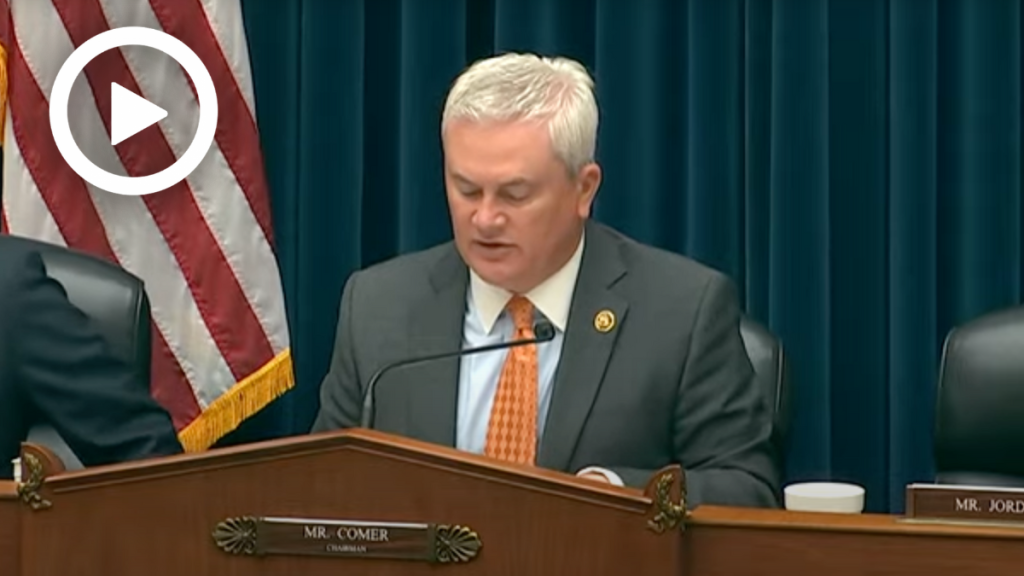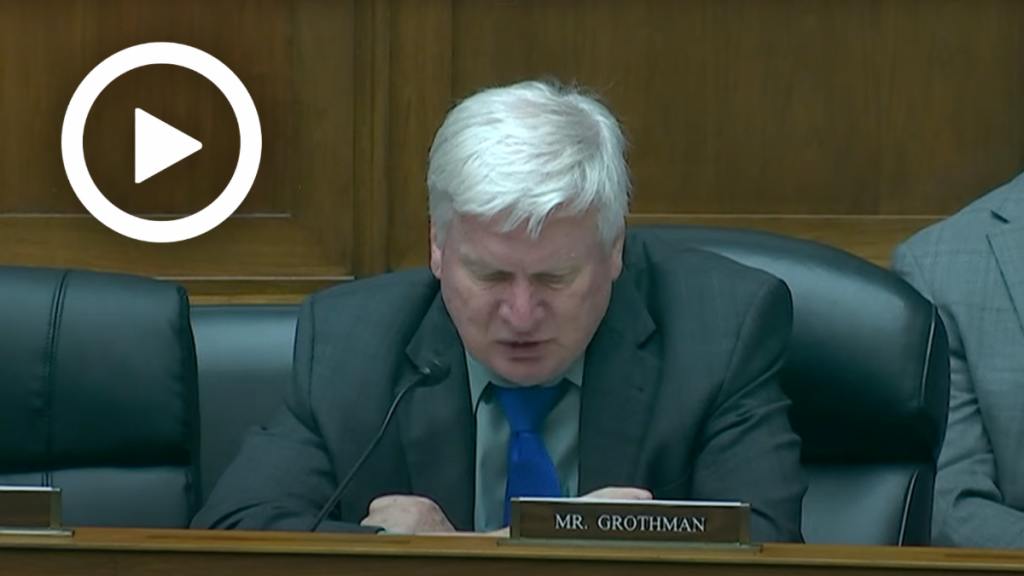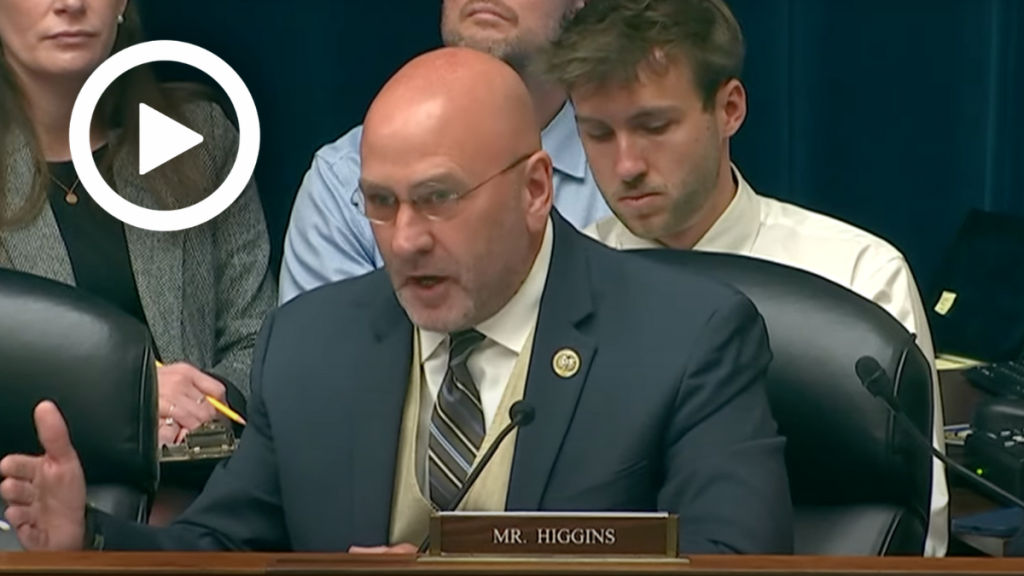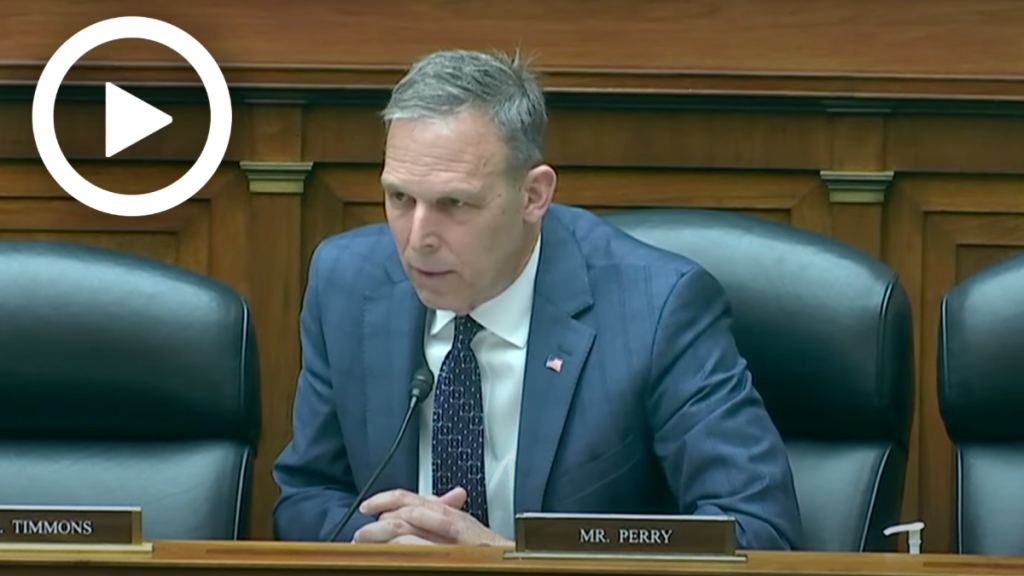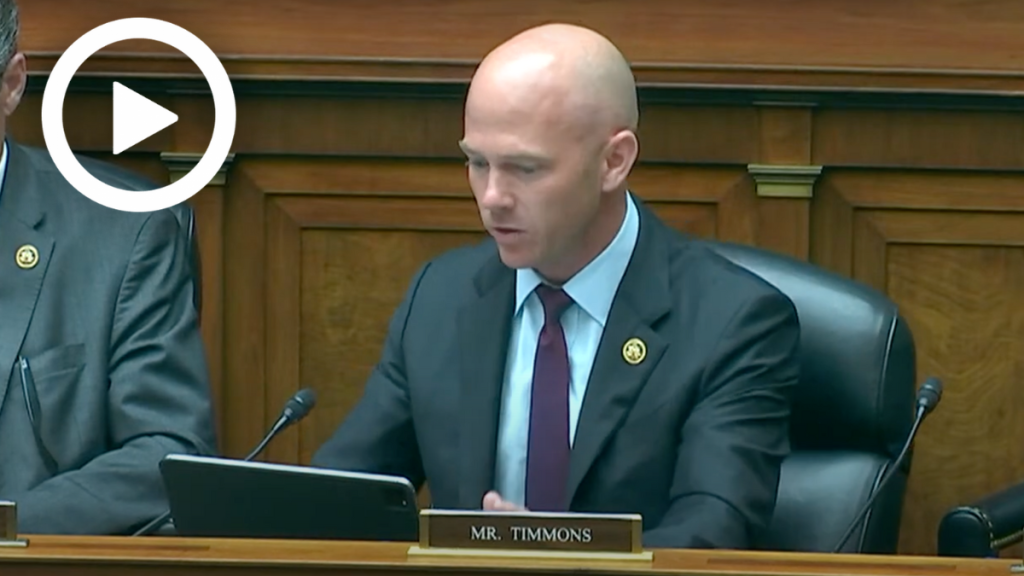Hearing Wrap Up: OMB Must Prioritize Data-Driven Policies to Ensure the Federal Government is Operating Effectively for All Americans
WASHINGTON – The House Committee on Oversight and Accountability held a hearing today titled, “A Focus on Management: Oversight of the Office of Management and Budget.” At the hearing, members noted that government performance impacts all Americans – whether it’s securing the border, issuing Social Security checks, or processing student financial aid forms. Members emphasized that the Office of Management Budget (OMB) has failed to prioritize effective, data-driven decisions that would benefit American taxpayers and must begin to take steps to ensure the federal government is operating efficiently. To ensure that the federal government is putting the priorities of Americans first, members pressed OMB Deputy Director for Management Jason Miller on why many federal workers are still not showing up to the office and stressed that the Committee will continue to work to hold OMB accountable.
Key Takeaways:
The federal government is the nation’s largest employer and OMB has a responsibility to explain how its policies are efficient, effective, and put the American people first.
- Chairman James Comer (R-Ky.): “The federal government is the nation’s largest employer, with a two-million strong civilian workforce headquartered here in Washington, D.C. Each year, those employees administer nearly two-trillion dollars in grants and contracts. OMB works with individual federal agencies to ensure that the President’s vision is executed across the government. The government exists to serve the American people, so it should always be managed with their best interest in mind.”
OMB claims to use data-driven management but has failed to provide key data to the Oversight Committee that explains or justifies major management policies, such as federal employee telework.
- Chairman James Comer (R-Ky.): “The Biden Administration claims to be using data-based management. But it’s not showing its work. A prime example is employee telework. That necessity ended long ago. Yet, massive telework continues under the Biden Administration who is intent on making it a permanent fixture of federal work life. How do we know this is in the best interest of the public? The only data we’ve seen on that is a survey of federal employees themselves. They think it’s working great. How can telework levels be data-driven if you don’t even know how many employees are teleworking?”
Under oath, OMB Deputy Director for Management Jason Miller made a commitment to provide the Oversight Committee updated information, documents, and data on federal employee telework. The House Oversight Committee will continue to hold OMB accountable and conduct oversight to ensure the federal government is being well-managed and operating with Americans’ best interests in mind.
Member Highlights:
Oversight Committee Chairman James Comer emphasized American taxpayers expect services to be delivered efficiently and effectively.
Chairman Comer: “The management side of OMB – which Mr. Miller leads – devises and oversees the execution of the President’s Management Agenda. That’s the blueprint for how the President wants the government run – how to manage the workforce, the contracts, the IT, and the finances. My constituents and those of the other members of this Committee want government services delivered efficiently and effectively. And they don’t want to pay for unnecessary overhead.”
During Chairman Comer’s questioning, Deputy Director for Management Jason Miller confirmed that OMB will provide updated data and information to the Committee on the federal government’s outdated telework policy.
Chairman Comer: “We all work for the taxpayers. Whether you are a federal employee or a member of Congress. Telework has not been a good deal for American taxpayers. Understanding how return to work plans are progressing is important for oversight. Will OMB provide the Committee the plans and relevant data and documents on telework policy?”
Mr. Miller: “Yes.”
Chairman Comer: “We don’t believe the federal government is any more efficient under this telework policy. We don’t even know what the telework policy is. If you can prove telework is more efficient through data, we will accept that and begin to sell off federal properties. We have asked for this data information but with all due respect you should have already compiled this information.”
Representative Glenn Grothman (R-Wis.) illustrated how Americans working in the private sector across the country have continued to show up to work in-person while federal agencies are still only requiring a 50 percent in-person rate at the office.
Rep. Grothman: “Do you feel that your progress in getting people back to work in person is slower than desired? It seems to me like that COVID is ancient history right now and that email dated back to January 2024, kind of recent, does it imply that things are going slower than your expectations were?”
Mr. Miller: “We expect agencies to completely follow through on their implementation and we will hold them accountable for that.”
Rep. Grothman: “I do feel that in government sometimes they don’t realize the degree to which in the private sector, in many areas, everyone is back to work…I just want to emphasize that I think in many private sector jobs, they show up…we should be back to where we want to be.”
Representative Clay Higgins (R-La.) highlighted the Biden Administration’s overreaching executive order mandating federal construction projects use labor unions which limits access for qualified American workers.
Rep. Higgins: “What do you tell the 80 percent of American workforce that no longer qualifies to work on billion-dollar projects?
Mr. Miller: “I want every American to have access to skills and a high-quality job.”
Rep. Higgins: “That’s your answer? You want every American to have a high-quality job? That’s a talking point. How do you respond to the family that cannot work? You know what’s going to happen? The federal government is going to push these states too far.
Representative Scott Perry (R-Pa.) grilled Mr. Miller for failing to give substantive answers on the President’s executive order and received a commitment from Mr. Miller to provide the Committee with basic information in a timely manner.
Rep. Perry: “It seems to me that time and time again plans remain unavailable to the public and unavailable to Congress. Why would that be?”
Mr. Miller: “Congressman again, on the specifics here I’m happy to take your concerns back.”
Rep. Perry: “Can you provide anything at all, any information whatsoever on this executive order at this hearing?”
Mr. Miller: “I’m happy to talk about my broad management purview and the specific priorities that I have been focused on.”
Rep. Perry: “And what are they? What are those regarding this executive order?”
Mr. Miller: “Again, it’s not been a major focus of my time, I’m happy to take back your specific question.”
Rep. Perry: “What is the timeline on the provision of these answer? A week? Six months? You know there’s an election coming in November so we’d like to have that in a timely manner so we can evaluate how well you’re doing and if you’re out of bounds.”
Representative William Timmons (R-S.C.) pointed out that America’s debt remains unchecked, and OMB plays a role in ensuring taxpayer funds are spent effectively and efficiently. He noted that OMB can prioritize Artificial Intelligence (AI) to combat wasteful spending.
Rep. Timmons: “Today our det is almost $35 trillion dollars. This is entirely unsustainable. While Congress needs to solve some of these problems, I do believe OMB plays a role and can lead here. We identify waste, fraud, and abuse. OMB plays a huge role here too. Are you aware of high-risk areas and ways we can save money?”
Mr. Miller: “Yes. We need to make sure we are making improvements.”
Rep. Timmons: “Is there an opportunity to use AI to further increase savings?”
Mr. Miller: “There is real opportunity with AI, and we are committed to using it responsibly. We can use it to analyze risks and identity fraud.”
READ MORE:
